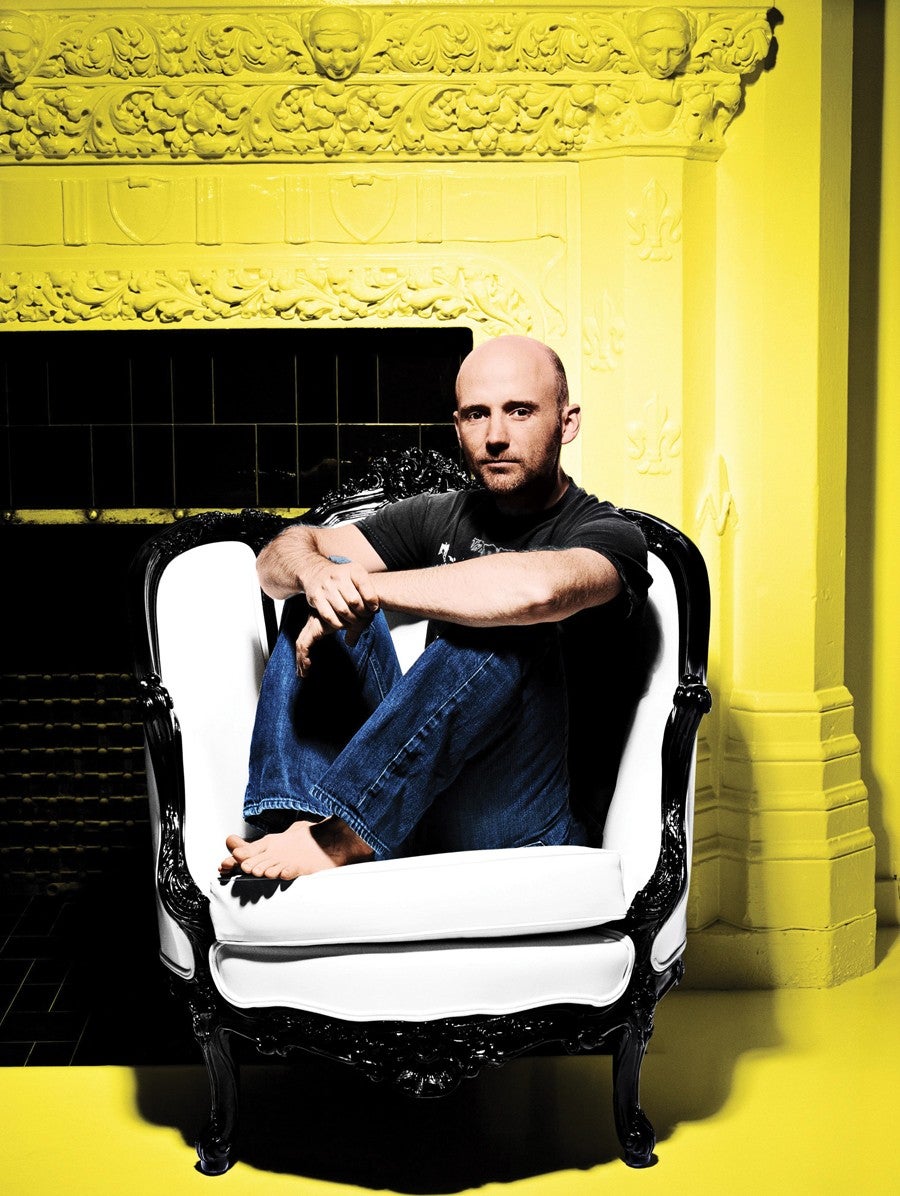One on One with Moby

The title of Moby’s 1996 CD, Animal Rights, spells out an issue that has been important to the Grammy-nominated songwriter and musician for more than 20 years. Vegan since 1987, Moby, 42, donates much of the money he earns from the licensing of his music for commercial useincluding selections from his latest CD, the dance-floor-friendly Last Nightto the Humane Society of the United States.
Q: Who introduced you to vegetarianism?
A: My mom. She was an aspiring vegetarian when I was growing up. At that time I had nothing but scorn for the idea of being vegetarian. All I wanted to eat was Burger King. My mom would try and sneak tofu into my food and I would be outraged. Then, when I was 19, some friends of mine saw an animated short called The Animal Movie, which convinced them to become vegetarians. Based on their testimony, I decided to as well.
Q: Why did you become vegan?
A: Basically it was the same criteria that led me to be a vegetarian, which were essentially that I liked animals and I didn’t want to do anything that contributed to their suffering. Finding out more about chickens kept in battery farms and dairy cows confined in cages led me to be vegan. Given a choice between one action that creates suffering and one that doesn’t, it just makes sense to choose the action that doesn’t create suffering.
Q: Although it’s not a vegan organization, you work closely with the Humane Society. Why?
A: From my perspective, the Humane Society is trying to decrease suffering, especially on the legislative side. So if that means working to have animals treated better in stockyards or battery farms, then, granted, animals are still being killed, but at least they’re being treated better before they’re killed. I think you have to deal with the world as it is. We’re talking about something like 15 billion animals in the United States alone being held in stockyards, slaughterhouses, and battery farms. In a perfect world, animals wouldn’t be used for human purposes, but we don’t live in a perfect world.
Q: What was the impetus behind mobygratis.com?
A: I have a lot of friends in the independent film world. And their biggest complaint is that licensing music for movies is really expensive and difficult. So I thought I would make all this music of mine available for free to nonprofit and independent filmmakers and film students, as long as it’s used noncommercially.
Q: You’re a former co-owner of Teany, a vegetarian restaurant and tea shop in New York. What was your goal when you opened it?
A: As much as I love the many vegetarian restaurants that were already open in lower Manhattan, my meateating friends refused to go to them. So we wanted to create a restaurant where people would almost not even be aware that it was a vegetarian restaurant. What I was most proud of about Teany was that on any given Saturday, we would be filled with people, and a very small percentage of them were vegetarian. So if you went to Teany and you were a vegetarian or vegan, you would be perfectly happy. But if you went to Teany and you were a meat eater, you would also be happy. Regardless of what some people’s feelings might be about fake meat, it is a really good way of getting meat eaters into vegetarianism. It’s a gateway drug.
Q: What’s it like to be publicly identified with veganism?
A: There’s a positive side to it, in that I’ve been able to reach people and talk about what led me to become a vegan, but it has also subjected me to a lot of ridicule. The moment you identify yourself as a vegan, people assume you are a judgmental moralist. And I hope I’m not a judgmental moralist. This is how I have chosen to live my life, but I don’t want to be didactic in the way I approach other people’s lifestyle choices.